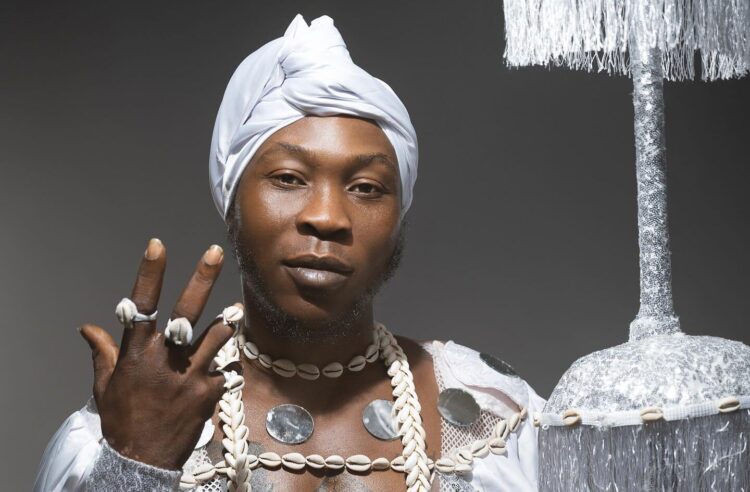Seun Kuti, son of the legendary Fela Kuti, returns with his long-awaited album, Heavier Yet (Lays The Crownless Head). The project marks the Afrobeat artist’s first release in six years, following the critically acclaimed Black Times. Together with his band, Egypt 80, Seun delves into a powerful narrative of class consciousness, imperialism, and societal inequalities, positioning the album as a rallying cry for the working class and the poor.
In an interview with OkayAfrica, Seun Kuti, preparing for a concert at the Afrika Shrine in Lagos, expressed his excitement about the new album, which serves as a continuation of the rich legacy of Egypt 80. Over nearly 30 years at the helm of the band, Seun has cultivated a reputation for his musical dexterity and political activism. Heavier Yet showcases both, with songs like “Dey,” featuring Damian Marley, and “T.O.P,” evoking his signature sound while branching into new creative territory. The album, executive produced by rock icon Lenny Kravitz, is a bold exploration of the struggles of the global working class.

His reasons for the title
Seun Kuti explains that the title, Heavier Yet (Lays The Crownless Head), counters the familiar saying, “heavy lies the head that wears the crown,” often used to generate sympathy for the powerful. “This album is a story for the working class and the poor people of the world,” Seun says. He clarifies that while the rich and powerful seek both dominance and sympathy, it is the crownless, everyday people who bear the true weight of the world’s hardships. The album is a call to action — from simple protests to revolutions — against systems of oppression.
Read Also: 10 Romantic African Movies to Watch
Musically, Heavier Yet continues to push the boundaries of Afrobeat. Tracks like “T.O.P” touch on the rat race of life, with poignant lines like “this world is full of romance and this world ain’t got no love,” critiquing the capitalist redefinition of love as mere romance. Other songs, such as “Dey” and “Emi Aluta,” return to Afrobeat’s roots in organized chaos, with urgent rhythms and powerful political commentary. Zambian rapper Sampa The Great’s verse on “Emi Aluta” complements Kuti’s impassioned socio-political narrative.
Another standout, “Love & Revolution,” is an ode to Seun’s wife, blending eclectic compositions with the idea of love as a revolutionary force. Seun aligns this view with Che Guevara’s belief that revolution is the highest form of love, where one sacrifices for the greater good of society. He says that true love isn’t just about personal relationships but about striving to improve the world together. “It’s not okay that we wanna live a life where we’re alone and together,” he remarks.
Seun’s intellectual curiosity is also evident in his approach to music. Drawing inspiration from literature, he credits Aldous Huxley’s Brave New World for influencing “Stand Well Well,” a track that reflects his deep interest in books and philosophy.
While Seun has collaborated with various artists across genres, from rappers like Common and Black Thought to Afrobeats star Fireboy DML, he remains rooted in Afrobeat’s mission of education and activism. He addresses the current dominance of Afrobeats in Nigerian media, pointing out that the lack of variety in music isn’t the fault of artists but rather a reflection of the media’s failure to expose the public to a diverse range of sounds. Seun argues that true change will come when professionals across sectors — not just musicians — raise their consciousness and demand better from society.
With Heavier Yet (Lays The Crownless Head), Seun Kuti and Egypt 80 continue to evolve musically while remaining steadfast in their commitment to amplifying the voices of the oppressed. The album is not only a masterful showcase of Afrobeat’s musical traditions but also a poignant reminder of the struggles that lie ahead and the actions needed to overcome them.






































Discussion about this post